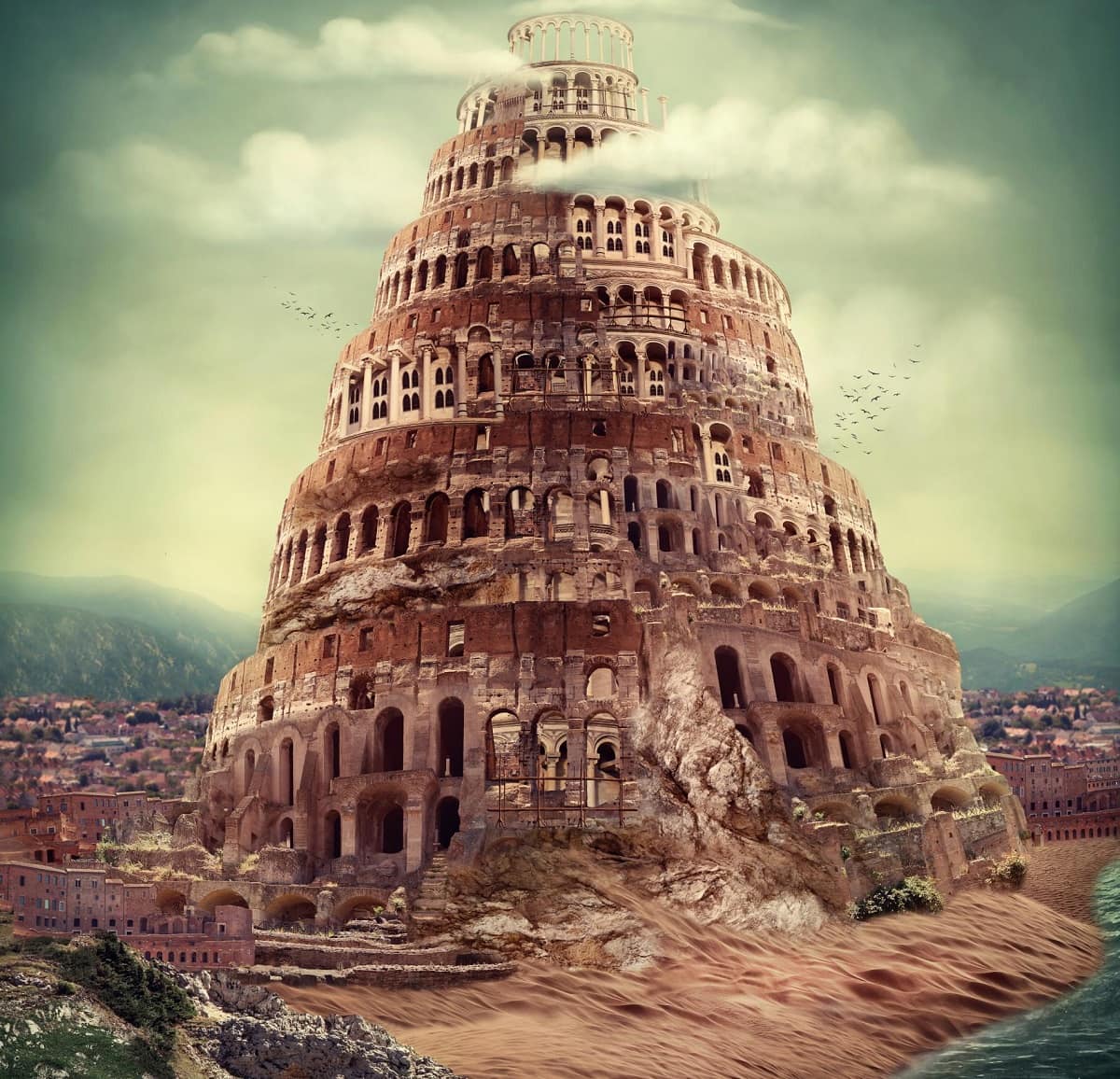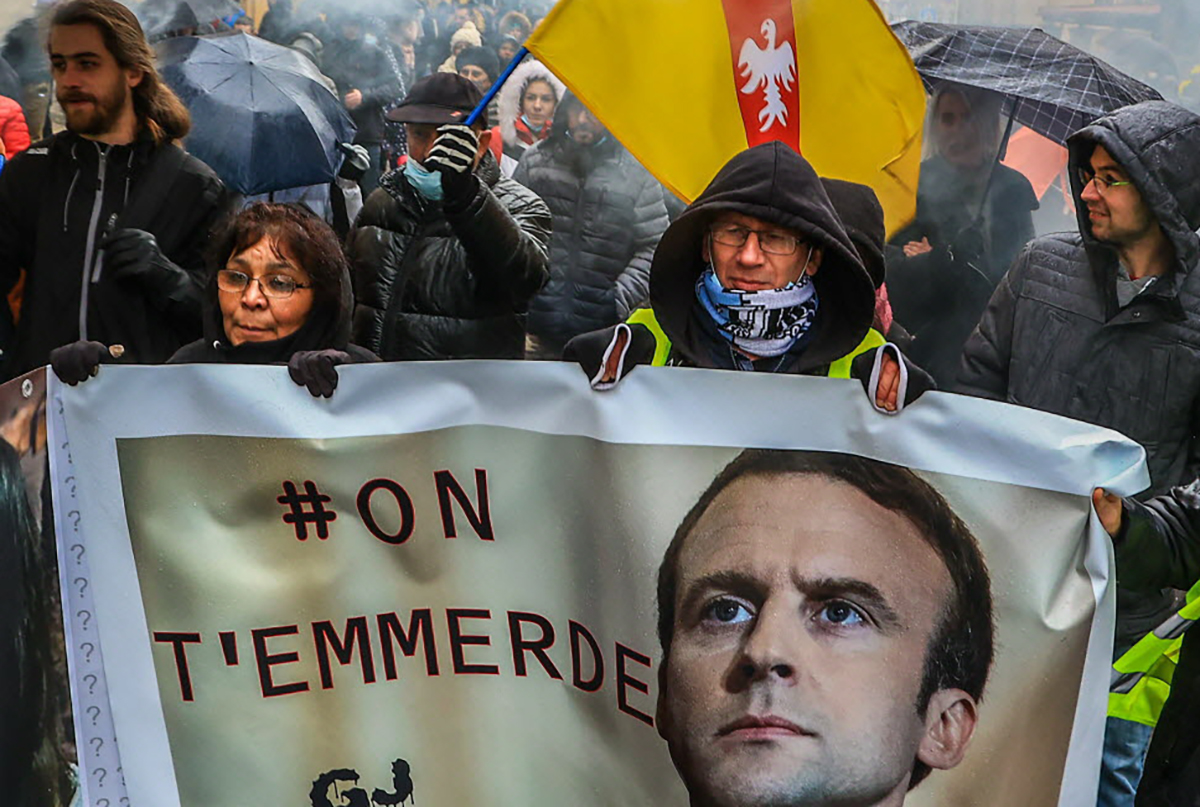The stories of the Tower of Babel and Noah's Ark should be re-read in the light of the situations imposed on us by the coronavirus pandemic. In these times of global sustainability crisis, their rereading offers us striking insights. This is what François Valleys, a philosopher from the other side of the world, in Peru, proposes. An inspiring and invigorating reading, necessary in this period of meditation on our immediate future.
The short Tale of Babel, in the book of Genesis, describes in a few lines a problem of humanity that we would do well to meditate on in these times of global crisis of sustainability. Unlike the context of the previous story, that of Noah, where it was human wickedness and the earth "full of violence" that led God to launch the flood, the story of Babel begins in harmony and consensus: humans speak the same language, they are one people and all agree to work together, to build a great city that will allow them to "make a name for themselves" and not to disperse. Babel thus begins with union and collective coordination, an urbanized, industrious humanity, repugnant to dispersion, without conflict or violence. Of course, we immediately think of our current globalizationIt is literally an urban life of broad collective cooperation for "growth" and "development", thanks to technical prowess that reaches to the skies, all in a single language, English reworked into "globish". Babel, we are there, we want it.
The God of Babel seems to be a proponent of the environmentalist theses of the Club of Rome: "Stop growing! »Here again, as in the previous stories, God will intervene to thwart the human project. His concern this time is no longer the wickedness of men, or their disobedience, but the fact that they no longer have any limits. God worries: "Now nothing they plan to do will be out of their reach! "according to the translation of the Société Biblique Française, published by Le Cerf. The translation of Les Moines de Maredsous (1992) is even more topical in terms of management: "If they start this way, nothing will prevent them from carrying out all their undertakings from now on! ». We are therefore faced with a strangely well-known situation: the all-powerful industrial power with fabulous companies, sworn enemy of limits (Impossible is nothing), barriers (customs) and communitarianism (isolationism) that crumble humanity on its way to progress and perpetual surpassing (transhumanism), suddenly comes up against a fundamental concern about the destructive nature of the "human race".hybris civilizational. The God of Babel seems to be a proponent of the ecological theses of the Club of Rome The "Halt Growth! »[1].The divine trick here curiously consists in creating confusion and incomprehension among men, at the risk of seeing the violence that God abhorred at the beginning of Noah's story repeated: "Come, let us go down and put confusion in their language, so that they no longer understand one another! ». After this introduction of noise and misunderstanding into human communication, God does exactly what men feared, he scatters them over the face of the earth. They are now so many plural communities with different languages, inhabitants of different ecological niches, making urbanity impossible: "and they stopped building the city". Thus ends the short story. The God of Babel loves diversity, and he loves it horizontally, in the countryside.
In Covid-19 times, we think twice before raging against the divine project of dispersing and multiplying small, isolated autonomous communities.A modern interpretation of this story might criticize God for giving us the poisoned gift of the diversity of languages and peoples, the root of all chauvinism, nationalism, war, misery, racism, colonization and domination in the world. But in Covid-19 times, we think twice before raging against the divine project of dispersing and multiplying small isolated autonomous communities. Isn't it because we're all together, shoulder to shoulder, in this planetary global city that the virus has so easily become a pandemic, instead of being confined to one locality? And isn't it this same compulsively industrious urban culture of limitlessness that has led us to the current impasse of unsustainable development, widespread predation, the collapse of bio- and ethno-diversities, and thus to the rise of health, economic, social and ecological crises? Why didn't we follow the divine advice to disperse and maintain small village communities far from each other, instead of becoming infatuated with the Babelian global city?We feel, however, as moderns, a deaf uneasiness at the evocation of the return to rural community dispersion. Universal understanding attracts us, and it comes through the community of communication and common governance. We are committed to progress. Kant the first, a thinker of ethical and political universalism, of the League of Republican Nations united in a project of freedom and rationality, denounced the peaceful life of the "Shepherds of Arcadia". [2] whose monotonous existence was, according to him, no better than the sheep they grazed, and he (dangerously) praised our bellicose nature which plunges us into misery but also into the effort to get out of it by reason and development. Can there be development and progress in dispersion and incomprehension? And even if our problem today is that of ensuring the perpetuation of humanity in the face of the global society of risk (Ulrich Beck [3]), how could we not want global coordination to tackle crises together, which implies that scientists and politicians speak with one language, if not with one voice, to agree on the best solutions?
Here is the paradox of Babel: We must love limits and diversities so as not to risk collapsing a human edifice drunk with constant overcoming, but we must also unite and understand together to preserve this same human edifice from the violence unleashed by misunderstood differences. Humanity must be united in order to survive, but it must be diversified and singularized into a myriad of plural communities in order to survive. The solution to this paradox seems to me to lie in three points that define the philosophical and cultural framework of the ecological revolution that challenges us:
A crisis occurs when everyone in the system does the same thing at the same time.1- It is indeed the one and only God (ecologist) who makes the living group together, all in the same boat built by Noah on his advice, and who then disperses all humans into distinct linguistic and geographical communities everywhere on earth to avoid mono-cultural and mono-economic Babel. It is the same love of survival and "sustainable development" that makes us fight together in the face of the flood (climate change) by taking care of all species (biodiversity) and that coordinates the means of this fight by relocating activities while respecting ethno-diversity. There can be no sustainability without diversity and therefore without a love of limits and plurality. The lesson of Babel is that the definition of the crisis of a system is always this: there is a crisis when all the individuals in the system do the same thing at the same time. The Tower of Babel that everyone is building is thus the symbolic representation of the crisis of uniformity, and therefore of the danger of terminal collapse. We must all stand together on Noah's Ark against the monolithic grouping of the urban dwellers of Babel and its unsustainable growth. It is no longer a conflict between right and left, but between height and horizontality.2- The union for survival that we are talking about is therefore the exact opposite of the standardization of languages, discourses and practices. What must be maximized is not the optimization of each solution in a race for perfection, which has resulted, for example, in practically all medicines being produced by a single country, an "optimum" solution for prices but a catastrophic one for global health security. Rather, what needs to be maximized is the autonomy and resilience of each community through locally self-sufficient economies. The ecological relocation of activities and humans does not mean isolation, however, because it will of course be nourished, in the age of the Internet, by the exchange of ideas and the sharing of resilient good practices (permaculture for example) between communities, as well as by mutual aid for the repair and regeneration of the communities that have been the most bruised by the most affluent (because the misfortune of some is the misfortune of others if some communities are frankly more attractive than others). Science, arts and technology circulate intensely in a post-Babelian world dedicated to the relocation of anti-crisis economies, but not too much money, rather conceived in the form of local currencies.
A new valorization of limits must be born by "old-fashioned" predation of consumerist productivism.3- The cultural revolution to which the Tale of Babel invites us is to no longer confuse the universal with standardization, the ideal with optimization, limitation with frustration, happiness with excitement, the human with the permanent desire for the superhuman, and consensus with the panacea. The optimization of the part always leads to the ruin of the whole, because of contempt for balances and thresholds. A new valorization of limits must be born, not only by "old-fashioned" predation of consumerist productivism, as it rightly demands. Aurélien Barraubut also by making a mockery of transhumanism irritated by human imperfections and agitated by the hatred of mortality. We must also stop despising the rural and confusing it with backwardness, as our advertising and even our education system slyly does. Will we then, far from Kant, be able to love again the shepherds of Arcadia, or the villagers of the Tao Te King (aphorism 80) who do not wish to leave their commune for the rest of their lives, so happy are they with their sobriety? It is noteworthy that the Bible and the Tao were already in agreement on this point, as Pierre Rabhi points out [4].There is still the risk of self-exclusion and the confinement of these autonomous communities with opaque languages, quickly accused of autarky, or even autism, and pilloried of "communitarianism" by metropolitan thought. mainstream imbued with universal sound. Personally, I have always encountered more sectarianism in modern urban thinking than in indigenous communities generally inspired by a great spirituality and a gift for listening. But let us admit that the tactic of dispersing the God of Babel can be dangerous. How, then, can the divine gift of the diversity of languages and ethnic groups be interpreted in a charitable way, without risking either a return to candlelight or the hateful gregariousness of the other?
The subtlety of the message of Genesis is undoubtedly due to the enormous wealth of the pluralitywhich Hannah Arendt believed was the ultimate human condition... [5]and which is neither the repetition of watertight singularities, nor a surpassable step in a larger unit. The plurality of languages opens on the effort of the translationThe bridges are stretched between the same one who knows he is cramped at home and the others. The mutual translation, without any dialectical overflow into an imperial language (monstrous and mediocre globish), is what guarantees the life of the mind far from the trivialities of single thought. This cultural richness nourishes the sciences, the arts, politics and ethics. You wanted to save progress? Then save plurality, precisely!
In the age of the Internet, let's not be afraid of community autism.In the age of the Internet, let's not be afraid of community autism. Interconnected peasants will invent a thousand seeds of high agro-ecological science. Endogenous development has never been at war. Rather, let us beware of the Tower of Babel of many business schools that now teach only one economic truth in English, the same one that is leading us to the flood. This is where the powerful are educated, who are quick to want absolute security at the price of freedom and who already dream of a permanent virtual control of citizens in the shadow of high-tech totalitarianism, for the optimal management of crises through Babelian obedience.Let us practice together the respect and love of our diversities and the mutuality in small organizations, far from the towers where the top knows nothing about the ground. There are other wiser heights: There, in the Andes, parents give each child a pet to take care of, so that both the beast and the human can raise themselves mutually, the beast and the human, in reciprocity. [6]. There, no doubt, we know the secret of a post-Babelian ecological education. We will have to make the effort to go there and learn it in Quechua.
François VallaeysPhilosopher - Founding University Professor and Director of the Latin American University Social Responsibility Union (URSULA) in Peru / promoting responsible higher education. Author " For a true social responsibility. Clarifications, proposals "Editions PUF, 2013
[1] Club of Rome, Limits to growth (1972).
[2] Kant: Idea of a universal history from a cosmopolitan point of view (1781).
[3] Beck: The risk society (1986)
[4] Pierre Rabhi, Towards happy sobriety (2010).
[5] Arendt, The human condition, (1958).
[6] For more information (in Spanish) see for example : http://www.pratec.org/wpress/pdfs-pratec/grain-805-la-crianza-reciproca-biodiversidad-en-los-andes-ok.pdf
Header photo : Egal, istock by Getty images
First published on UP' Magazine on August 3, 2021












